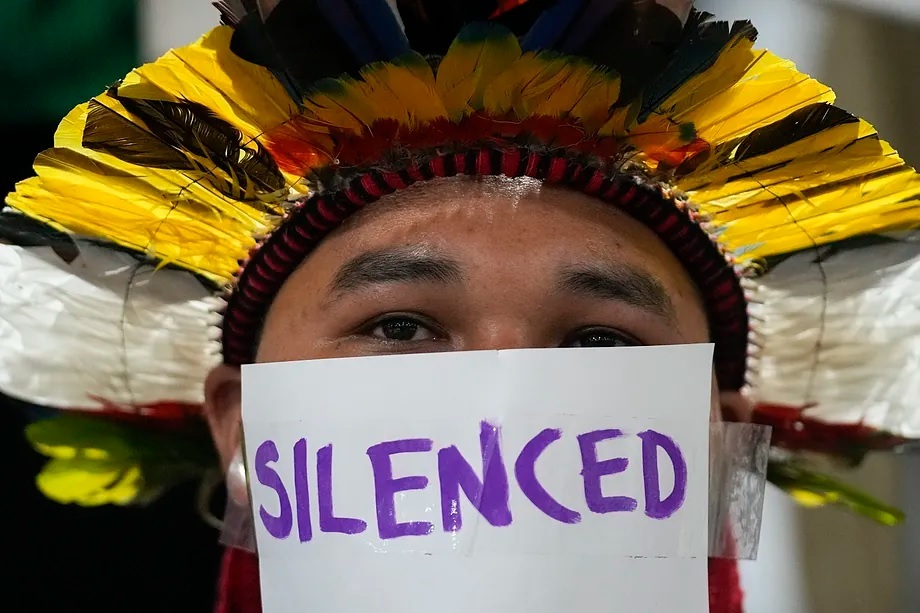The COP29 in Baku reached its midpoint amid harsh criticism from a score of leaders and experts in a letter sponsored by the Club of Rome and addressed to UN Secretary-General António Guterres: "It is clear that climate summits do not fulfill their purpose (...) We acknowledge the diplomatic progress of the last 28 years, but this framework alone will not solve the problems. We need to move from negotiation to implementation."
The request is led by former UN Secretary-General Ban Ki-Moon, former Irish President Mary Robinson, and the architect of the Paris Agreement Christiana Figueres. The letter expressly calls for "simplification" of the summits, a more significant role for developing countries, limits on the presence of "lobbyists" from the gas and oil industry, and the selection of host countries truly committed to climate action...
"We need stricter criteria to exclude countries that do not support the gradual phase-out of fossil fuels. Host countries must show a high level of ambition to maintain the goals of the Paris Agreement," the text continues.
Azerbaijani President Ilham Aliyev caused a stir with his opening speech, calling gas and oil "a gift from God," criticizing Western "fake news" about his country, and warning that "apologizing" for exploiting its reserves would be like "apologizing for having 260 days of sunshine a year."
In the absence of major world leaders, Albanian President Edi Rama took center stage at the summit's start, deviating from the script and challenging the over 70,000 delegates: "People eat, drink, meet, take pictures together, while the voiceless leaders are heard as background noise. What the hell are we doing at these climate summits if our speeches don't change anything?."
The presence of over 1,770 "lobbyists" from the coal, gas, and oil industry in Baku has also raised alarms. Only three countries - Azerbaijan, Turkey, and Brazil - have a higher number of representatives. The combined total of the 10 most vulnerable countries does not reach that figure, nor do the scientists or indigenous peoples' representatives.
The last three COPs have been organized by petrostates - Egypt, the United Arab Emirates, and Azerbaijan - amidst strong criticism for the hypocrisy and image laundering of the hosts. According to the organization Global Witness, Sultan Al Jaber may have used COP28 to negotiate oil agreements worth 92 billion euros with dozens of countries.
In the lead-up to this edition, Global Witness also revealed a conversation of a member of the organization posing as an investor with Azerbaijani Deputy Energy Minister Elnur Soltanov, offering to facilitate oil agreements during the summit. COP29 President Mukhtar Babayev worked for 24 years at the state oil company Socar. Hydrocarbons account for 90% of Azerbaijan's exports, with plans to increase gas production in the next decade to meet the EU's demand. Their climate negotiator is Dutchman Wopke Hoekstra, a former Shell employee.
The leaders' letter recommends profound changes in selecting venues from 2025 onwards, after COP30 in Belém (Brazil) focusing on the Amazon. COPs began in 1995 in Berlin and reached their peaks in Kyoto (1997) and Paris (2015). What started as an annual meeting of leaders and experts has over time turned into a kind of traveling fair with dozens of sponsors, many linked to fossil fuels, and parallel activities ranging from yoga to culinary experiences.
Experts recommend "simplifying" the process, reducing the number of participants (85,000 at COP28 in Dubai), amplifying the voice of scientists, increasing representation of vulnerable countries, and prioritizing funding and implementation.
COP29 will set the New Quantified Collective Goal (NQCG), i.e., the money to be mobilized for developing and vulnerable countries to take climate change adaptation and mitigation measures. The circulated draft considers one trillion dollars annually, 10 times the current amount, with a target set for 2030 or 2035.
Former U.S. Vice President Al Gore used his time in Baku to join protests by dozens of activists against the slow process and Azerbaijan's double standards: "In Nashville, we have a country song, Looking for love in all the wrong places, and that's what's happening here. People believed that the oil industry was going to solve this for us. It is clear that it will not be the case: the global community has to find a more effective way to organize COPs, and the UN Secretary-General must have the final say on the venues chosen."
